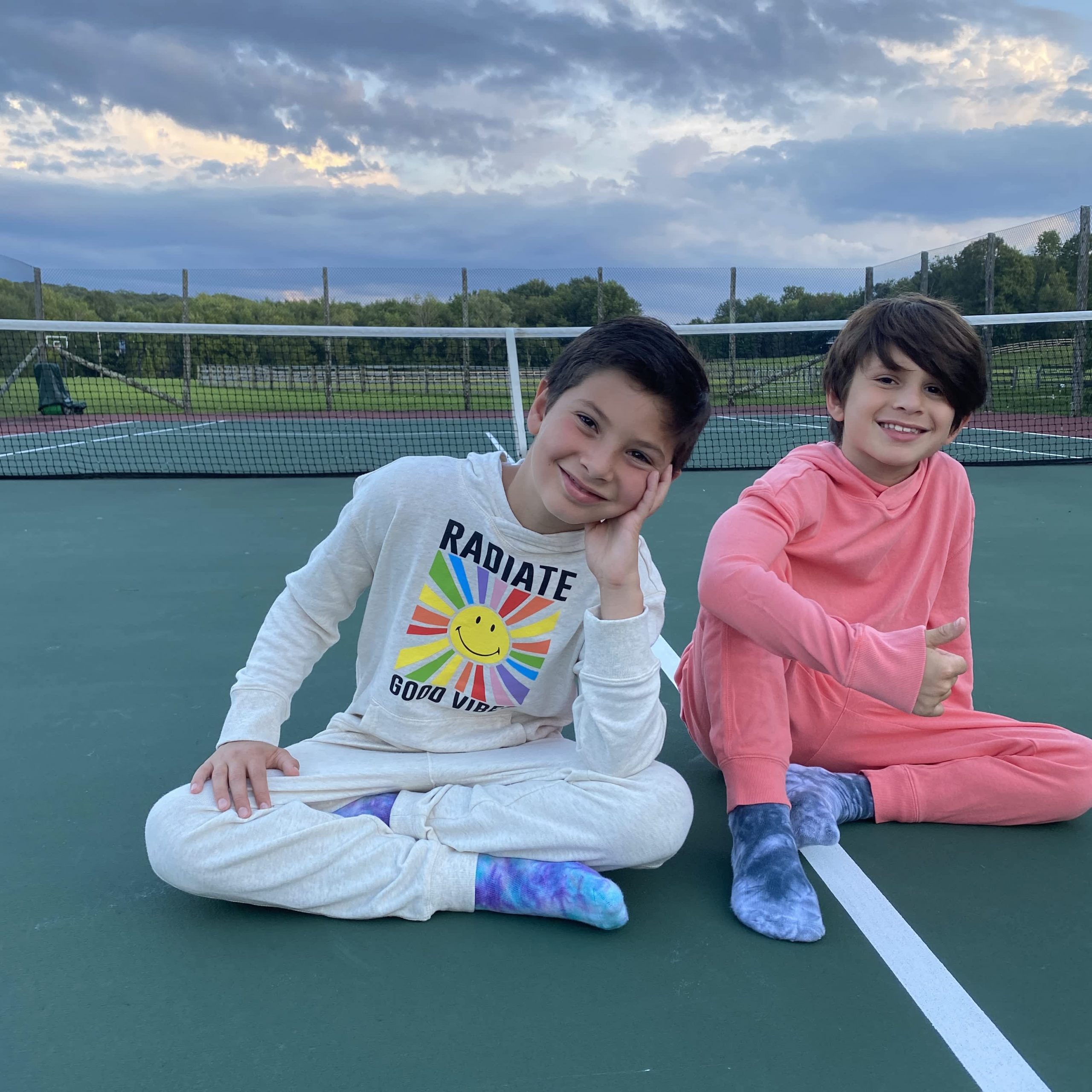
- POPSUGAR Australia
- Living
- How I Finally Got Control Over My Kids' Screen-Time Habit
How I Finally Got Control Over My Kids' Screen-Time Habit

Back in the old world, I sometimes used to wonder whether my sons – 8 and 9 – were a bit oversubscribed. I worried that maybe between all the afterschool practices and playdates, and weekend plans and birthday parties, they weren’t getting enough time to just “free play” and relax. Then the pandemic hit and their lives – like all of ours – transformed. Suddenly they had more downtime than any of us knew what to do with. And while I tried to replace the lost playdates and sports with spiritually nourishing, socially distanced activities like reading, cooking, hiking, biking, art projects, and stuff, we ultimately reached a limit. I needed time to work and do grown-up things, and they longed to play with their friends. The screen-time rules started to get more and more relaxed.
I haven’t read all the studies about the impact of screen time on kids. I just know that when my own boys would sit in front of the TV without first having spent a bunch of time running around, they’d behave badly. Really, they’re a lot like puppies. If you don’t take them outside to exercise for a while, they’re liable to gnaw on the furniture or something. So, we had always just eliminated screens during the week and been pretty lax on the weekends between games and parties and stuff. For us, this seemed to work pretty well. But in March, when school and playdates became on-screen experiences, those rules went out the window. The boys started playing a lot of Roblox with their friends – it was the new virtual playground. I felt badly pulling them away from the only socialization they were really getting. Selfishly, it did free me up to focus on working during the day and managing their 2-year-old sister. I had also felt a lot of guilt about all the things I had to say “no” to this past year like missed holidays, summer camp, and birthday celebrations. I so badly wanted them to be happy, and it became the way we got through this very odd period of time.
But before long, things started to get out of control. They were online all day long. And it started to impact their mood and behavior. Every time I would ask them to shut off the devices and take a break or play outside, they would complain and argue. They would spend the whole day asking when they could get back on – like some kind of incessant two-headed whine monster.
After putting them to bed one night after a particularly challenging day I was feeling so frustrated. How had I allowed this to get so out of hand? My husband and I formulated a simple plan. We’d let them play in the afternoon from 5 to 6 p.m. before dinner. One hour. No exceptions. The key was to be firm and consistent. No rule-bending.
The withdrawal was real. They were awful for days! Genuinely upset and deeply frustrated around the clock. They cried, they were angry, they gave a million reasons why it wasn’t fair. They both had toddler-style meltdowns! Really, if it wasn’t so upsetting, it would have been quite funny.
But after a few days, they started to settle into the new routine. They began to pull out their old toys and to play cards, Legos, and invent new make-believe games together! Bedtime got easier and their sleep improved. They seemed calmer. It was truly shocking how much of a difference we noticed in them.
The whole experience made me think a lot about how much I try to manage their happiness, and how tricky it can be to balance what’s good in the moment against what’s good in the long run. Obviously, we all want our kids to be happy. But as the scores of self-help books and studies in behavioral psychology seem to indicate – happiness is more complicated than one might think. Sometimes, by mitigating our kids’ discomfort we may deprive them of opportunities to build resiliency. It’s easy to feel like a bad mom when your kid is upset. As if their mood is our responsibility. But the truth is, it’s hard enough to control our own feelings! And really, it’s okay – it’s totally natural – to be frustrated, angry, or disappointed sometimes. Over the long term, it’s important for kids (and for all of us) to be able to manage those inevitable emotions capably.

